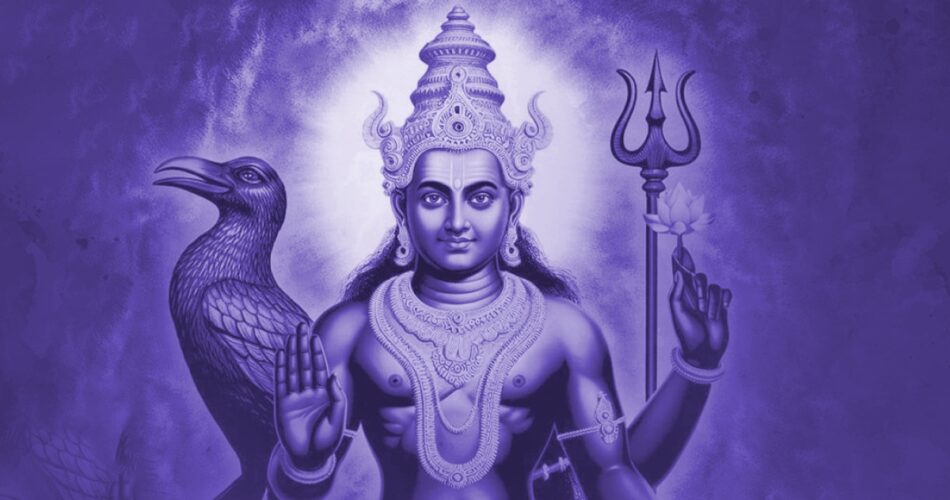Saturn is the planet of karma, discipline, and endurance. Understanding his role in your chart is key to navigating life’s challenges and rewards. In our webinar, Komilla Sutton teaches 12 essential steps to analyze Saturn in Vedic astrology. Below is a summary of these powerful insights.
This is just a brief overview of what Komilla Sutton covers in depth in our webinar. If you want to truly understand Saturn’s role in your chart and how to work with his energy, you can watch the full webinar here.
12 Steps to Analyze Saturn
1. Know the Puranic Story of Saturn Saturn (Shani) was born to Surya (the Sun) and Chaya (Shadow). Rejected by his father, his difficult childhood shaped him into the planet of justice, patience, and karma. His story reminds us that suffering leads to wisdom.
2. Saturn as the Karaka of Dushthana Houses Saturn governs the 6th (challenges), 8th (transformation), and 12th (loss and liberation) houses. His presence in these areas teaches endurance, resilience, and the necessity of facing difficulties for spiritual growth.
3. Saturn as the Natural Ruler of the 10th & 11th Houses Ruling Capricorn (10th house) and Aquarius (11th house), Saturn governs career, reputation, and financial gains. Success comes only through discipline and long-term effort.
4. Saturn’s Role in Karma & Life Lessons Saturn represents karma we cannot escape. Wherever he is placed, that’s where we must learn patience, responsibility, and perseverance. Avoiding these lessons only leads to repeated struggles.
5. Saturn’s Democratic Nature – No One Escapes His Tests Rich or poor, spiritual or materialistic—Saturn treats everyone equally. His lessons are universal, and no one is exempt from facing their karma.
6. Understanding Saturn’s Transits & Dasha Saturn’s Sade Sati (7.5-year cycle) and Mahadasha (19-year period) are life-changing phases. They demand restructuring, effort, and maturity, leading to long-term stability when handled wisely.
7. Saturn’s Aspects & Their Impact Saturn aspects the 3rd, 7th, and 10th houses from his position. These aspects slow things down, create obstacles, and demand patience in career, relationships, and personal efforts.
8. Saturn’s Nakshatra Placement Saturn’s placement in different Nakshatras refines his influence. For example, Saturn in Pushya enhances discipline, while in Mula, it brings intense karmic transformation.
9. Retrograde Saturn & Past Life Karma A retrograde Saturn (Vakri Shani) signifies unresolved past life karma. It makes a person introspective, slow in decision-making, and deeply focused on internal struggles.
10. Saturn’s Strength in Divisional Charts In charts like D-9 Navamsa (destiny) and D-10 Dashamsha (career), Saturn’s placement reveals whether hardships will lead to wisdom or prolonged struggles.
11. Remedies to Balance Saturn To ease Saturn’s harsh effects, one can chant Shani mantras, fast on Saturdays, donate to the underprivileged, and maintain discipline in life.
12. Saturn’s Role in Spiritual Growth Beyond hardships, Saturn is the planet of wisdom and detachment. Those who embrace his lessons grow spiritually, learning the power of patience, simplicity, and inner strength.
This is just a brief overview of what Komilla Sutton covers in depth in our webinar. If you want to truly understand Saturn’s role in your chart and how to work with his energy, you can watch the full webinar here.


